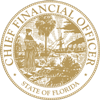CFO Jimmy Patronis: The 2019 Hurricane Season is Here, 5 Tips to Prepare Now
TALLAHASSEE, Fla. – With the 2019 Hurricane Season beginning tomorrow, June 1, Chief Financial Officer (CFO) Jimmy Patronis reminds Floridians how critical it is to prepare before the next storm takes aim at the Sunshine State. Homeowners insurance policies may contain limitations and exclusions, so it is important consumers review their policies now to understand their coverages going into hurricane season.
CFO Jimmy Patronis said, “Last year, Hurricane Michael ripped through the Florida Panhandle as a massive Category 5 storm producing more than 146,000 insurance claims and causing nearly $6.4 billion in estimated insured losses. If you haven't already, make sure you are financially prepared for the 2019 Hurricane Season by checking your homeowners insurance policy to ensure you are adequately covered. Now is the time to make sure your home and family are protected. Do not wait until a storm is approaching, it may be too late.”
Insurance Commissioner David Altmaier said, “When it comes to tropical weather in Florida, our risk is real. Floridians have experienced three consecutive, active hurricane seasons with a combined total of more than $17 billion in estimated insured losses. Floridians must review their insurance policy, understand their coverages and secure flood insurance. Our message to all Floridians: take the time to financially prepare for the 2019 Atlantic Hurricane Season and protect the life you’ve built.”
5 Hurricane Preparedness Tips
1. Secure flood insurance coverage. Standard homeowners insurance policies don’t cover flood damage. If you live in a flood-prone area, contact your agent about obtaining flood insurance. There are currently 29 insurance carriers writing flood insurance in Florida’s private insurance market. Depending on your home’s location, you may qualify to enroll in the federally-administered National Flood Insurance Program.
2. Get windstorm coverage. Some homeowners insurance policies do not cover damage caused by windstorms, such as hurricanes. If you have trouble obtaining a windstorm policy, you can check with Citizens Property Insurance Corporation, a state-run pool of last resort. Visit CitizensFla.com for more information.
3. Ensure you are adequately covered. The value of your home and possessions may have increased during the past several years, or you may have made improvements or purchased expensive items such as computers or major appliances. Review your insurance policy and check your coverage limits.
4. Consider additional living expense coverage. Additional living expense features of most homeowners policies pay some expenses for losses that leave homes unlivable during repairs. Such expenses could include limited motel, restaurant and storage costs.
5. Do not wait until a storm approaches. Property insurance companies do not accept new applications or requests to increase coverage once a hurricane nears Florida, so it is important not to wait until a storm is imminent to verify coverages. In addition, most flood insurance policies take 30 days to go into effect, so it is vital to act now.
For additional hurricane financial preparedness tips or resources, visit MyFloridaCFO.com or contact CFO Patronis’ Insurance Consumer Helpline by calling 1-877-MY-FL-CFO (693-5236).
###
About CFO Jimmy Patronis
Chief Financial Officer and State Fire Marshal Jimmy Patronis is a statewide elected official and a member of Florida’s Cabinet who oversees the Department of Financial Services. CFO Patronis works each day to fight insurance fraud, support Florida’s firefighters, and ensure the state’s finances are stable to support economic growth in the state. Follow the activities of the Department on Facebook (FLDFS) and X (@FLDFS).
